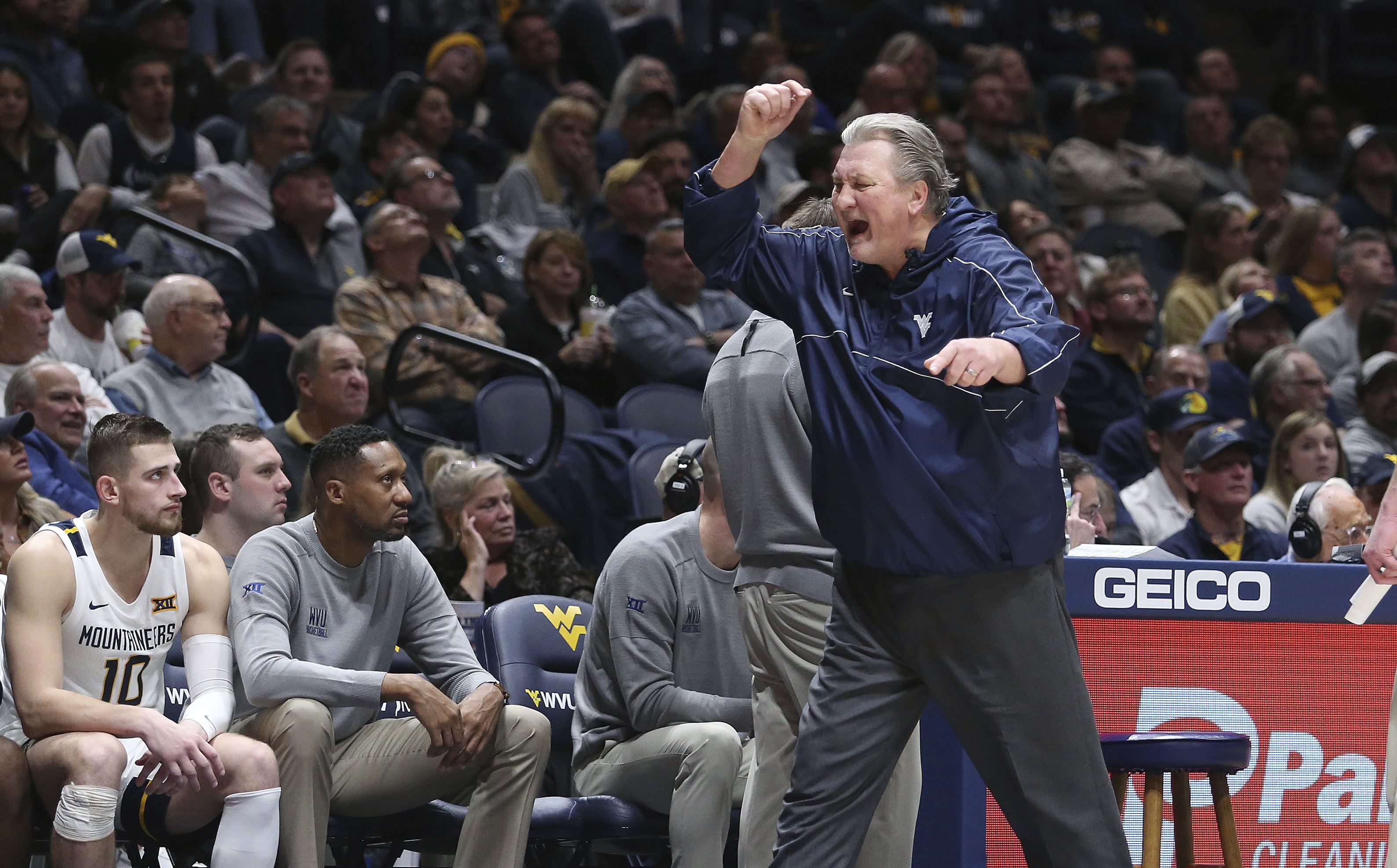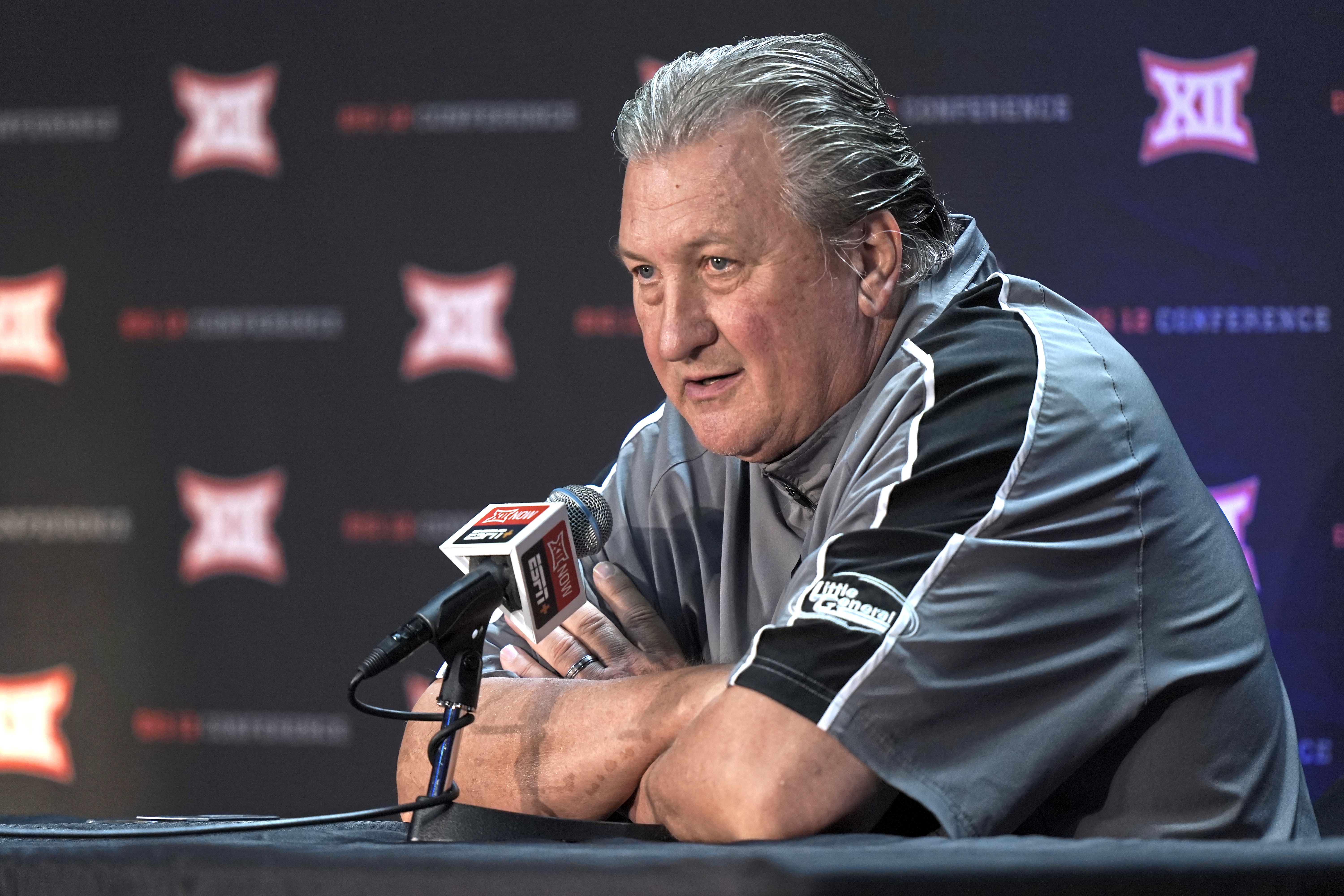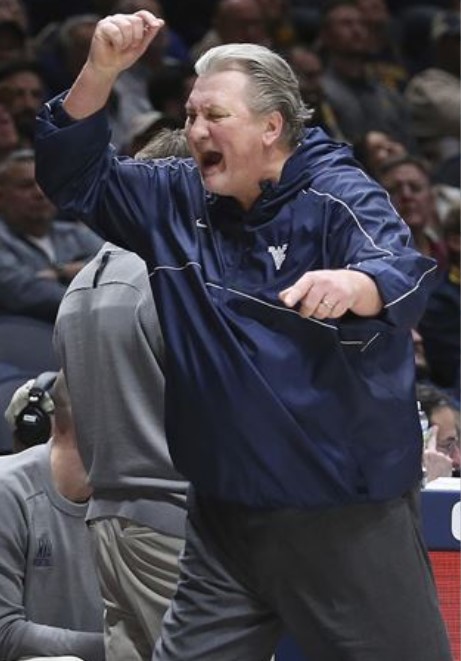
Huggins’ fall from the top
The worst part will be the first line of the obituary.
Bob Huggins, the legendary college basketball coach whose Hall of Fame career ended in disgrace ...
What a sad way for a really good man to be remembered.
Sure, there will be much said about Huggins’ amazing coaching success in the game he loved. He coached for 41 years — the final 16 at West Virginia — despite nearly dying from a massive heart attack at the Greater Pittsburgh Airport in September 2002. “I was dead. They had to bring me back to life twice,” he said, years later. Huggins won 935 games, more than any college coach but Mike Krzyzewski and Jim Boeheim. He took teams to 26 NCAA tournaments, including two Final Fours. He was inducted into the Naismith Memorial Basketball Hall of Fame in September.
There will be glowing tributes from former players, even though Huggins’ tough-love style often bordered on being abusive. Joe Alexander said it best after Huggins lit into him in front of the Pitt crowd and benched him during a game at Petersen Events Center in 2008: “He does it because he cares about us.”
Huggins helped Alexander become a first-round pick in the NBA.
Da’Sean Butler, star of Huggins’ 2010 Final Four team at West Virginia, will speak of a different, softer side of Huggins, one that revealed on a grand stage just how much Huggins cared about his players.
Butler was writhing in agony after blowing out his left knee during the national semifinal loss to Duke when Huggins came on the court to comfort him, getting down on his knees on the floor to cradle his face in both hands. “He told me he loved me and that I was a special kid,” Butler said later.
There will be memories of Huggins, 69, shared by the brightest lights in all of basketball. Everyone in the game knew him.
Just about everyone loved him. Surely, someone will quote fellow West Virginian Jerry West, the longtime NBA logo: “His teams are tough-minded. They’re extremely well-coached and they play really hard. I think he’s a great coach. I don’t think, I know.”
Finally, there will be stories about what Huggins meant to West Virginia; not just the university, but the state.
They will go far beyond the more than $20 million he has raised for the WVU Cancer Institute in honor of his late mother, Norma Mae, and the $300,000 he has raised for the Remember the Miners Flagship Scholarship Program.
He is from Morgantown. He is proud to say he is a West Virginian. It’s always saddened him that the state often is unfairly maligned and ridiculed, not just here because of the fierce Pitt-West Virginia rivalry, but nationally. He will tell everyone that West Virginia people — his people — are terrific people. He loved making them proud with his basketball program. He loved giving them a reason to feel good about themselves.
“I could run for governor,” Huggins half-joked during a daylong interview I did with him in October 2021.
“He would win easily,” said his longtime assistant coach, Ron Everhart.
It will be a very long obituary.
But that first line ...
Huggins resigned as West Virginia coach Saturday night, about 24 hours after he was arrested in Pittsburgh for driving under the influence.
According to the police report, he was confused about where he was and failed a sobriety test. His blood alcohol content was 0.21 percent, more than twice the legal limit in Pennsylvania. He was fortunate he didn’t kill himself or someone else.
Huggins’ arrest came just six weeks after he used an anti-gay slur during an interview with a Cincinnati radio station.
He was given a three-game suspension by the university and took a $1 million pay cut for next season. There had to be a zero-tolerance clause inserted into his contract.
It seems certain Huggins would have been fired if he hadn’t resigned.
“My recent actions do not represent the values of the university or the leadership expected in this role,” Huggins said in a statement. “I have let all of you — and myself — down.
“I am solely responsible for my conduct and sincerely apologize to the university community — particularly to the student-athletes, coaches and staff in our program. I must do better.”
If anything good comes out of this sad story, it’s that Huggins might get the help he desperately appears to need. This was his second DUI incident. He was convicted of drunken driving in 2004 while coaching at Cincinnati. He always blamed then-university president Nancy Zimpher for forcing him to resign the following year.
Now, Huggins is done as a coach.
This time, Huggins has only himself to blame.
Ron Cook: rcook@post-gazette.com and Twitter@RonCookPG. Ron Cook can be heard on the “Cook and Joe” show weekdays from 10 a.m. to 2 p.m. on 93.7 The Fan.


